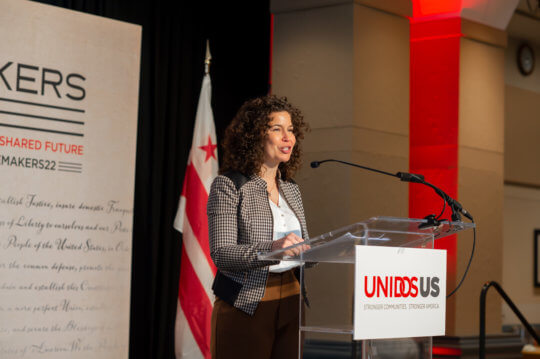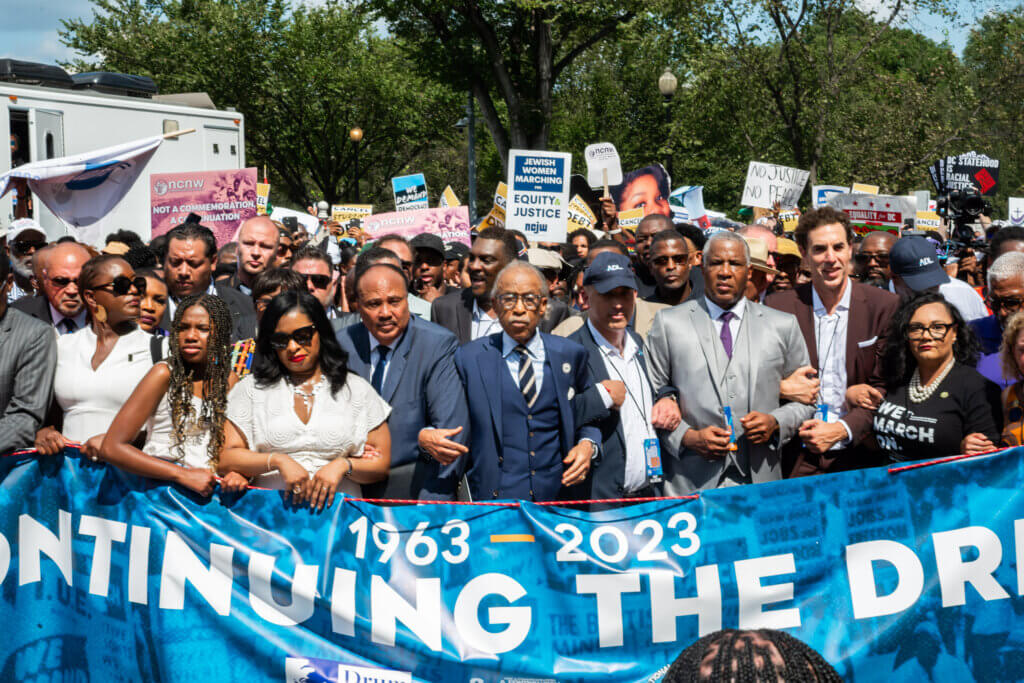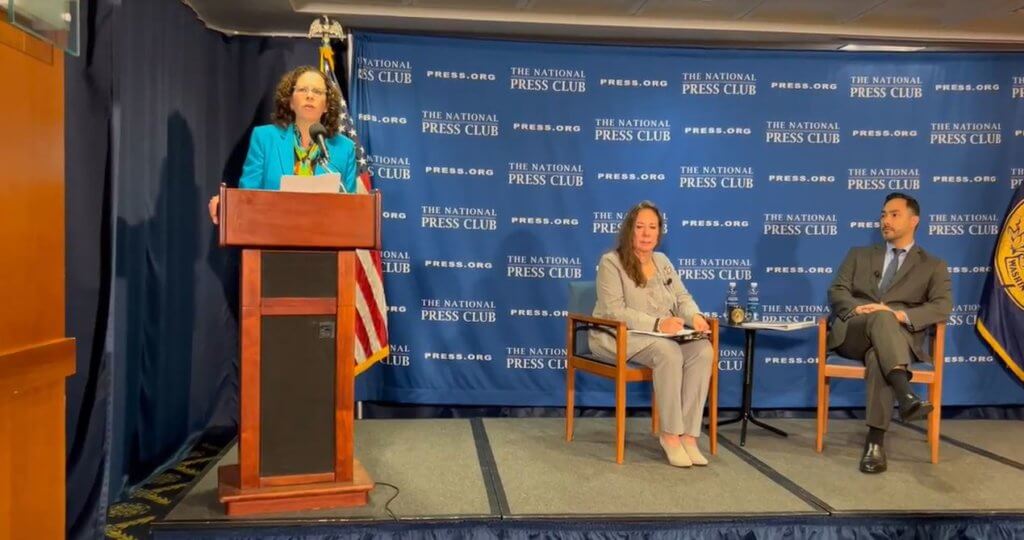Unprecedented: How ARPA signals future prospects for racial equity
The Biden administration’s American Rescue Plan Act (ARPA), along with a bipartisan infrastructure package, invested more than $3 trillion in pandemic relief in communities across the country. ARPA provided important investments for our community, including an expanded Child Tax Credit that U.S. citizens in Puerto Rico became eligible for, as well as expanding financial assistance for people enrolling in health coverage on marketplace.gov.
This past week, veteran and aspiring advocates from UnidosUS’s community-based Affiliates across the country gathered in Washington, DC, for a two-day advocacy summit, ending with visits with their representatives. As part of the summit, attendees heard from Janis Bowdler, the first-ever counselor for racial equity at the U.S. Treasury Department and UnidosUS alum, who gave her perspective on what ARPA has done to improve the well-being of the Latino community and what still needs to be done.

“All too often, the economy has not worked well for Black, Latino, and AAPI communities,” Janis explained. “Our goal is to foster an economy where everyone can achieve economic prosperity.”
Keep up with the latest from UnidosUS
Sign up for the weekly UnidosUS Action Network newsletter delivered every Thursday.
Janis noted that at the heart of the ARPA investments is a goal to create opportunity for all Americans.
“The challenges that we face today are rooted in our history of structural racism that has prevented [communities of color] from participating in the middle class,” Janis said.
Janis continued, describing that wealth inequality affected Latinos prior to the pandemic. During the Great Recession, Latino families lost 66% of their household wealth, and it wasn’t until 2017 that communities of color more broadly were able to get back to pre-recession unemployment levels.
“Treasury is requiring governments to report how their projects are impacting the communities they serve,” Janis added.
As part of the ARPA rollout, for example, the Treasury Department has been conducting outreach to organizations in communities across the country that received funds from the landmark legislation. For example, Treasury Secretary Janet Yellen visited Mi Casa Resource Center, an UnidosUS Affiliate in Denver, Colorado, that received funds from ARPA to conduct workforce development training in their community.
Janis also referenced the extraordinary power of the Child Tax Credit (CTC), which has lifted millions of Latinos from poverty since it was passed into law two decades ago. Under ARPA, the maximum credit amount was increased from $2,000 to $3,000 for children ages six to 17, and $3,600 for children under six. Advance payments from the CTC, according to a 2021 UnidosUS fact sheet, project a decrease of 10 percentage points in the Hispanic poverty rate as a result of the monthly payments.
“Tax credits have long been a part of a crucial way that the government supports families and workers,” Janis explained, adding that during this tax season, Treasury has had a special focus on Puerto Rico, where citizens can file for the CTC for the first time, thanks to funding from ARPA.
UnidosUS has been working on its own campaign to increase uptake of the CTC among Latinos, also with a focus on Puerto Rico. Just last month, Brayan Rosa-Rodriguez, senior policy analyst for UnidosUS’s Economic Policy Project, participated at a roundtable with featured speakers Gene Sperling, senior advisor to the president and American Rescue Plan coordinator at The White House, and Governor Pedro Pierluisi of Puerto Rico. Panelists included representatives from local and national nonprofits—Instituto del Desarrollo de la Juventud, Espacios Abiertos, United Way of Puerto Rico, United Way Worldwide, and Hispanic Federation. Both featured speakers and panelists discussed the progress that investments from the ARPA had made in Puerto Rico since it was passed a year ago as well as the work that’s left to be done.
Janis herself was enthusiastic about the progress that had been made since ARPA’s passage but encouraged the advocates in the audience to keep pushing.
“We have to make sure that we are institutionalizing and building a muscle for this work within government agencies,” Janis concluded.



